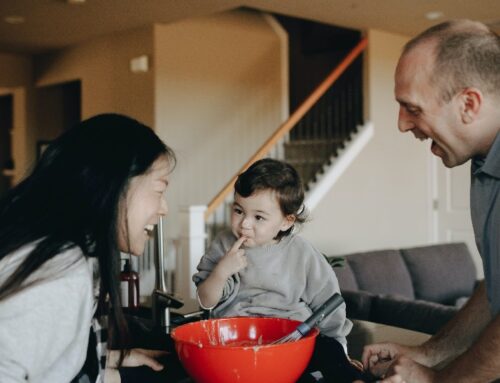 Most people think of a few common things that pass through generations in families. You might recognize personality traits, physical features, and even risks of certain health conditions.
Most people think of a few common things that pass through generations in families. You might recognize personality traits, physical features, and even risks of certain health conditions.
In some cases, however, trauma can be something that gets passed on, too.
Generational trauma is still a relatively new discovery. There is much more that needs to be studied, but it’s important to be able to accurately define it and recognize the symptoms. Most people think you need to be directly impacted by a traumatic experience to display symptoms, but that isn’t always the case.
So, what is generational trauma, and how can you recognize the signs?
How Does Generational Trauma Work?
Generational trauma was first discovered/discussed by studying the mental health implications of Holocaust survivors. It was discovered that children and even grandchildren of those survivors were more likely to need psychological care and treatment than others.
Since then, more research has been done on other large groups of individuals with previous generations that have been involved in traumatic events.
The findings? Children who grow up with parents or grandparents that have experienced trauma are more likely to share some of those symptoms. While the children may not have directly experienced the trauma, the psychological effects are transferred from one generation to another.
It becomes a pattern for families, making it difficult for each following generation to understand how to cope and heal. So, the cycle continues.
The Familial Signs of Generational Trauma
 You might be asking yourself what a family dealing with generational trauma looks like. It’s important to understand that traumatic experiences impact everyone differently. Symptoms won’t always be the same. But, some of the most common signs to be aware of in families of generational trauma include:
You might be asking yourself what a family dealing with generational trauma looks like. It’s important to understand that traumatic experiences impact everyone differently. Symptoms won’t always be the same. But, some of the most common signs to be aware of in families of generational trauma include:
- Emotional numbness
- Difficulty expressing feelings
- Trust issues
- Frequent conflicts
- Anxious
- Overly protective
- Not accepting of “outsiders”
If you notice some of these signs in your family members, consider why they’re so prominent and whether they seem healthy. You might even see some of them in your own behaviors and thoughts if that was part of your upbringing.
From a more personal standpoint, this kind of trauma can impact your immune system, especially when you’ve been dealing with it for so long. It might make your immune system too active—or not active enough. As a result, you might be at a greater risk of developing certain autoimmune diseases.
Recognizing and Treating the Problem
Trauma often passes from generation to generation through certain beliefs and dispositions. When you’re ingrained with those beliefs from a young age, it can even impact the way your brain works. That may cause genetic changes that will be passed down to future generations.
 The sooner you recognize some of the common signs of trauma, the sooner you can receive support and begin to heal.
The sooner you recognize some of the common signs of trauma, the sooner you can receive support and begin to heal.
Treatment for generational trauma needs to include some type of intervention to “break the cycle.” Often, this includes one-on-one therapy, group therapy, or family therapy. It’s easy to feel helpless when you have symptoms of trauma and don’t fully understand why. Therapy can help you realize you’re not alone. You can learn coping mechanisms and skills to help you deal with those symptoms.
When you do, you’ll start to feel more in control of your own life again. You can take the first step toward breaking the chains of generational trauma, so it doesn’t continue to get passed on.
If you’re worried you might be experiencing the effects of generational trauma, feel free to contact me. Together, we’ll get to the bottom of your symptoms, discuss your family dynamic, and help you move forward while reclaiming a piece of yourself.
For more information about my services in Delray Beach, FL and Sandy Springs, GA, click here Trauma Therapy.





